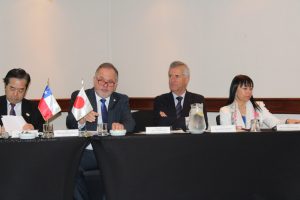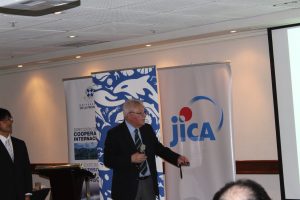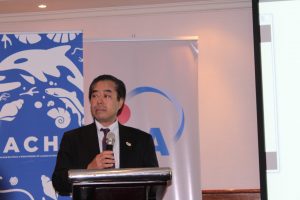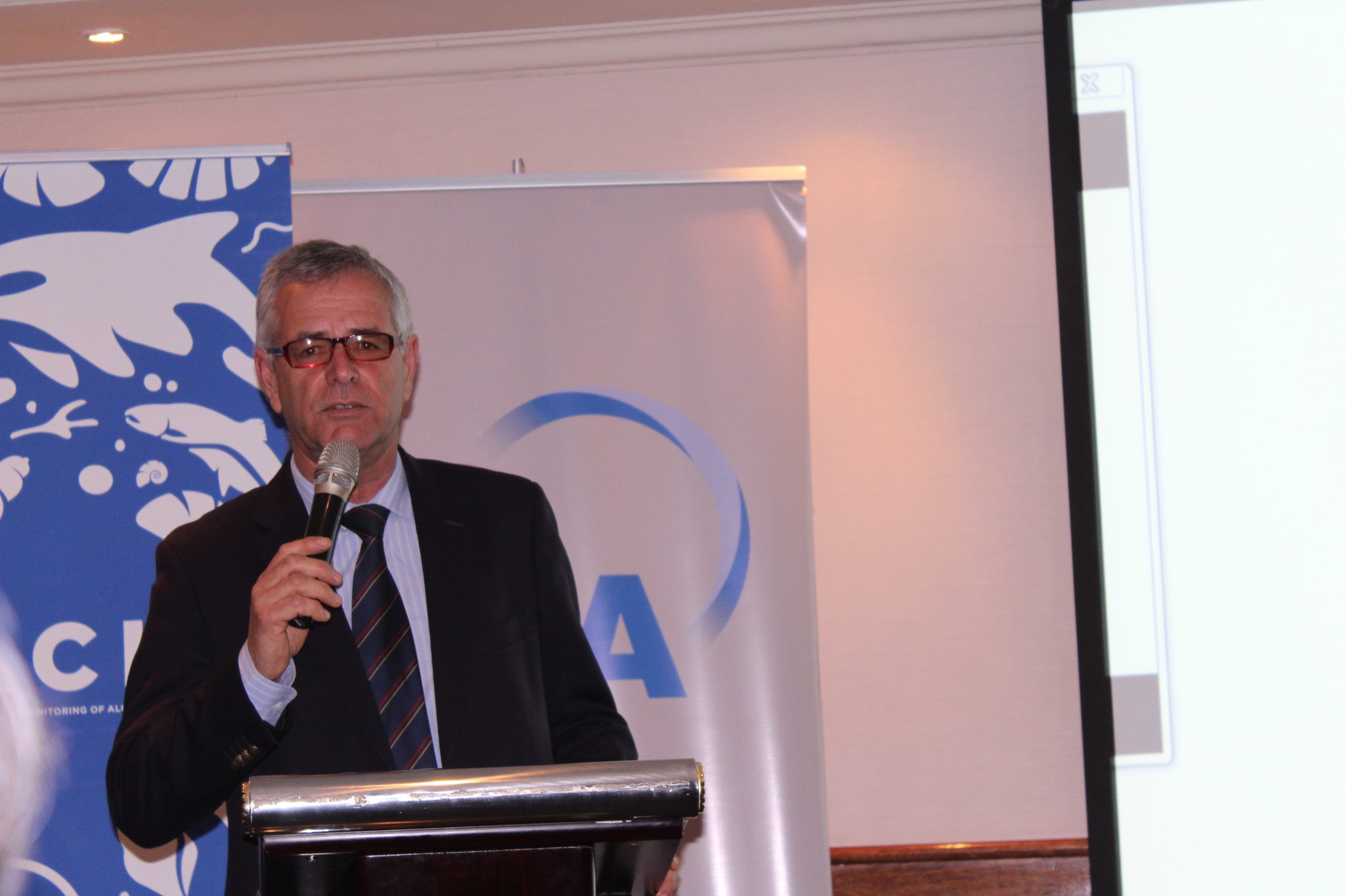IFOP will develop a “Harmful algal blooms for sustainable aquaculture and coastal fisheries in Chile monitoring project and prediction system”
September 8th, 2018
This study covered geographical area considers Antofagasta, La Araucanía, Los Lagos, Aysén and Magallanes Regions.
Launched Wednesday, September 5th in Santiago, ” Project for a sustainable aquaculture and coastal fishing in Chile development of monitoring methods and prediction systems for harmful algal blooms “.
The activity was attended by Japan’s Ambassador Yoshinobu Hiraishi, Sofia Bustos, head of MINSAL public policy division, Luis Parot Donoso, IFOP executive director, Leonardo Guzmán, IFOP aquaculture division head, Oscar Espinoza, IFOP’s Study Center for Harmful Algae (CREAN) chief, fisheries and aquaculture institutions Chilean authorities, private sector and Japanese researchers that will participate in the project.
“This research will last 5 years and its costs are close to 6 million dollars. This contribution is made as follows: Japan International Cooperation Agency (JICA), through Scientific and Technological Research for Sustainable Development Association (SATREPS) contributes US $ 3 million in 5 years. Japan Science and Technology Agency (JST), through SATREPS project, provides US $ 2 million in 5 years; MITSUI company collaborates with 900 thousand dollars in 5 years in order to carry out activity of dissemination and social implementation of the project “.

The program brings together a group of institutions where IFOP will be recipient of the final product, which consists of operating a red tide early warning system. The participating institutions are: Kyoto University, Japan National Fisheries Science Research Institute, Okayama University, Universidad de la Frontera (UFRO), Universidad de Antofagasta (UA), Universidad de Los Lagos (ULAGOS), and Fisheries Development Institute (IFOP) “. In this context, from October for a period of 5 years, we will have Dr. Kyoko Yarimizu, who will support on the field and laboratory work. His counterpart in Japan is Dr. Satoshi Nagai of the National Fisheries Research Institute, explained Dr. Guzmán

Japan’s Ambassador Yoshinobu Hiraishi said “our country has a long history of joint work with Chile on aquaculture and fish farming issues, for years we have cooperation projects, with universities and also Abate Molina donation, so I am very happy to be able to participate in this important project ”
Luis Parot Donoso IFOP Executive Director highlighted “our participation is the result of a process initiated in mid-2000 that has allowed us to have research capabilities in the extreme south of the country, which has culminated with the installation of Harmful Algae Study Center CREATE. In addition to a recognized national and international prestige in the field of harmful algal blooms (FAN) and its effects. But IFOP’s experience in the subject dates back to the early nineties.
It is important to note that in the past IFOP has links with JICA in the fish complex of Coyhaique initially linked to Chinook salmon cultivation, then to Coho salmon. There is also a historical relationship with JICA in the donation of B / I ABATE MOLINA to Chile. “
